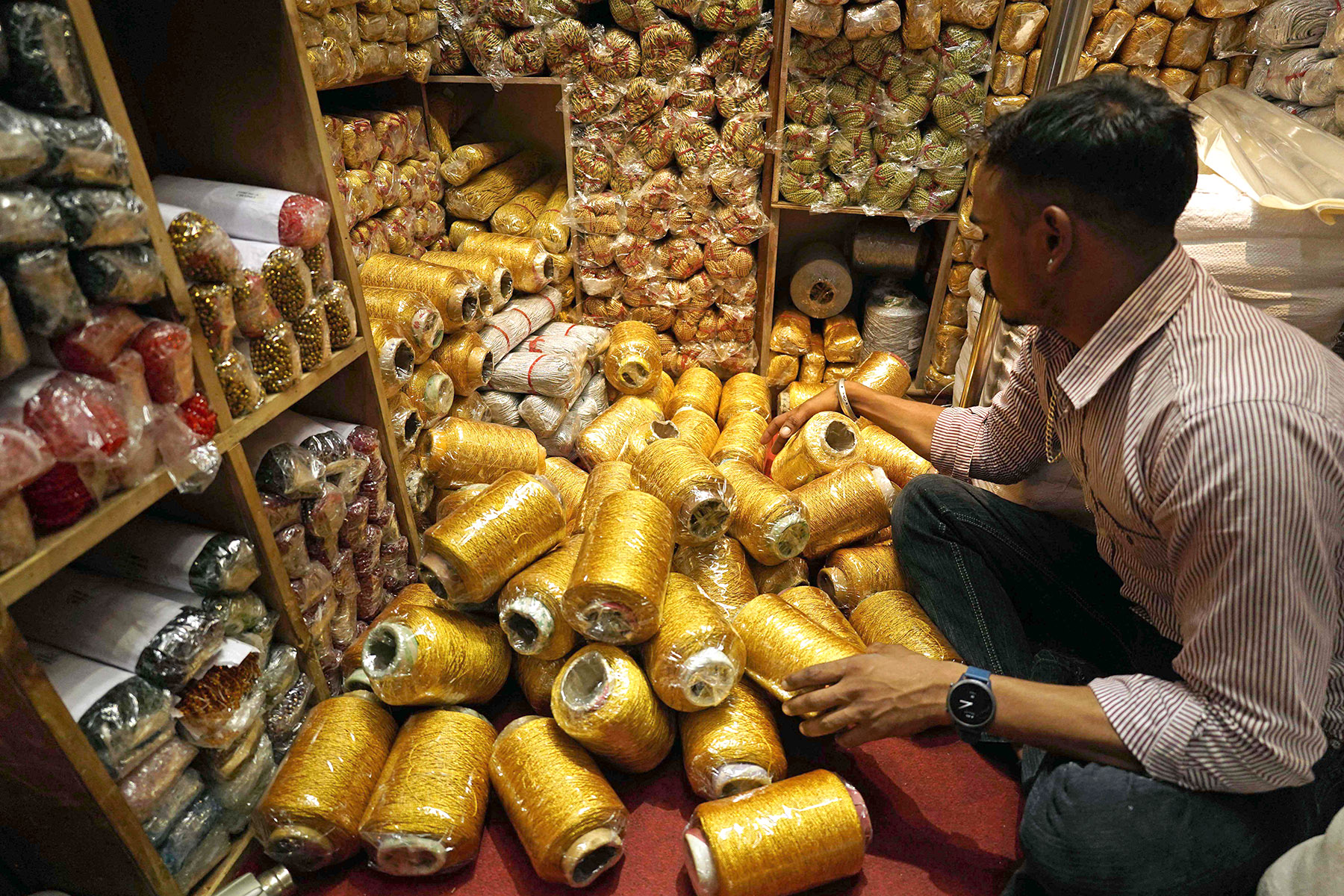
The 25 percent US tariffs likely to be imposed on Indian exports, which is higher than that of many countries in Asia, can wreak havoc on India's economy, analysts said.
US President Donald Trump said on Wednesday that the United States is still negotiating with India on trade. Earlier in the day, amid talks to finalize a trade deal, he announced on his social media platform Truth Social a 25 percent tariff on Indian goods starting from Aug 1, with an additional but unspecified "penalty" for its defense and energy imports from Russia.
"They have one of the highest tariffs in the world now, they're willing to cut it very substantially," Trump told reporters. "We're talking to India now — we'll see what happens… You'll know by the end of this week."
READ MORE: Trump sets 10%-41% 'reciprocal' tariffs on dozens of countries
Trump's deadline for US trade partners to finalize a trade deal with the US ends on Aug 1. New Delhi is yet to finalize a deal.
The Indian government has taken note of Trump's statement on 25 percent tariffs and is "studying its implications", India's Ministry of Commerce and Industry said.
"India and the US have been engaged in negotiations on concluding a fair, balanced and mutually beneficial bilateral trade agreement over the last few months. We remain committed to that objective. The government attaches utmost importance to protecting and promoting the welfare of our farmers, entrepreneurs, and MSMEs," the ministry said in a statement. Micro, small and medium enterprises are collectively referred to as MSMEs.
The government will take "all steps necessary to secure our national interest, as has been the case with other trade agreements, including the latest Comprehensive Economic and Trade Agreement with the UK," the ministry said.
"As a result, the country's trade and manufacturing will be severely affected. This move will hit virtually all export-driven businesses in the US," said Lekha Chakraborty, a professor of the New Delhi-based National Institute of Public Finance and Policy.
"The tariffs will affect nearly $87 billion worth of goods sold to the US market annually. The US is one of India's largest export destinations."
According to Sanjay Agarwal, a Kolkata-based stockbroker, electronics, including smartphones and components, face particular challenges. "India is now one of the major suppliers of iPhones to the US. So is the pharma sector, textiles and garments, gems and jewelry. India supplies around 25 percent of generic drugs consumed in America."
The expert also cited some export organizations which have already warned that India's GDP growth could be reduced by 0.2-0.5 percentage points as a result of the tariffs.
"India was one of the first countries to start trade talks with the Trump administration. It made many early concessions, including tariff reductions. It's been increasing US goods imports and investing in the US for years," Michael Kugelman, director of the South Asia Institute at the Woodrow Wilson International Center for Scholars, said on X.
Huge penalties
India's seafood exports as well as the agricultural sector are expected to suffer most as these industries can't cough up huge penalties, Sebastian Morris, a former professor at the Indian Institute of Management in Ahmedabad, said.
The US announcement to impose a 25 percent tariff plus a "penalty" comes ahead of the visit of US officials to India on Aug 25 for the next round of negotiations over the proposed bilateral trade agreement.
ALSO READ: Trump says 19% tariff to be charged on Indonesian goods
"The penalty, based on India buying Russian oil and weapons, is more worrying. But keeping in mind that even with the deals we have seen so far, the parameters, the details and timelines are unclear. Even deadlines have proven to be fungible," Pushan Dutt, a professor of economics and political science at the INSEAD business school in Singapore, said.
India's import of crude oil from Russia has increased in recent years. It bought about 1.63 million barrels a day of Russian crude last year, more than a third of its total imports, according to ship-tracking data compiled by Bloomberg.
Aparajit Chakraborty and Arunava Das are freelance journalists for China Daily.
Contact the writers at vivienxu@chinadailyapac.com


